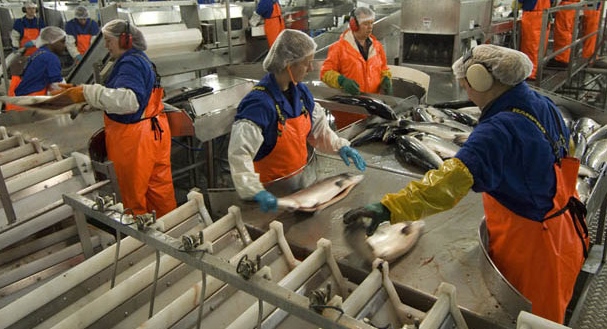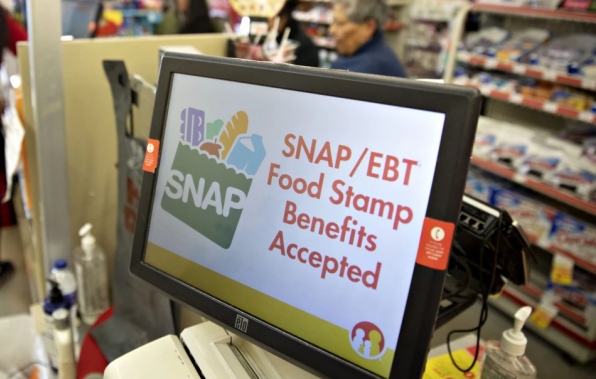A recent University of New Hampshire study on the direct and indirect effects of the global pandemic on U.S. seafood workers demonstrated that seafood workers – those in processing plants and on fishing vessels – are twice as likely to contract COVID-19 when compared to workers in any other food industry. The study was published in the journal PeerJ Life & Environment.
The study demonstrates that one of the largest contributing factors to the higher rates was that social distancing was difficult to maintain in plants and on vessels because of the assembly line nature of production which required them to be within close proximity to one another. This, in spite of the fact that precautions were incorporated: reducing the number of employees on the processing lines and spacing them apart. This measure backfired because, with fewer workers processing and packaging products, it meant longer shifts to meet the demand which increased exposure times.
“We hope this research sets the foundation for future practices in the seafood sector in relation to the COVID-19 pandemic, improving the overall workplace and recognizing the importance of collecting systematic social and economic data about workers.”-Easton White, Assistant Professor of Biological Sciences, University of New Hampshire.
Cases of COVID-19 were found in all U.S. coastal areas, however, Alaska which is home to 60% of the U.S. commercial fisheries, experienced the largest number of outbreaks with most cases in Dutch Harbor and the Aleutian Islands.
In contrast to Alaska, New Bedford’s preemptive response to COVID-19 was shown to be exemplary in the effectiveness of reducing coronavirus cases. New Bedford was one of the first to open both testing centers and vaccination sites specifically for seafood workers and this led to limiting the number of cases and outbreaks.
The study suggested examining how differences in seafood distribution accelerated the COVID-19 pandemic and how it changed the seafood value chain overall. Studying the adverse effect the COVID policies had on the physical and mental health of the employees was perhaps the most important of all.
 New Bedford Guide Your Guide to New Bedford and South Coast, MA
New Bedford Guide Your Guide to New Bedford and South Coast, MA







